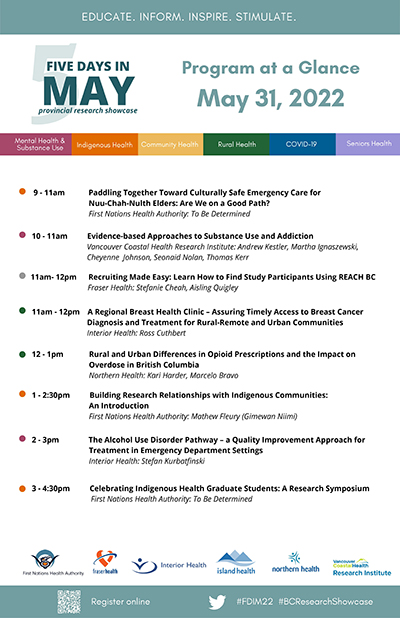Read about day five events and register.
-
9:00 a.m. | Indigenous health | Paddling together toward culturally safe emergency care for Nuu-Chah-Nulth Elders. Are we on a good path?
A collaboration between the West Coast General Hospital (WCGH), the First Nations Health Authority (FNHA) and the Nuu-Chah-Nulth community brought together key stakeholders to address the culturally unsafe treatment of many Nuu-Chah-Nulth Elders accessing emergency care. This led to the establishment of a project team that was awarded funds to hold a workshop with Nuu-Chah-Nulth Elders in 2017. A report was co-created with recommendations developed by Elders, community members and health partners. This presentation will review the recommendations of the report and a panel will discuss the barriers and progress made on implementing key recommendations.
Learning objectives:
- Attendees will be familiar with the key recommendations of the Paddling Together Report on culturally-safe emergency care for Nuu-Chah-Nulth Elders.
- Attendees will be able to examine the barriers and progress made on key recommendations.
- Attendees will be able to identify actions that will continue to support and strengthen the implementation of the recommendations.
Speakers: TBA
-
10:00 a.m. | Mental Health and Substance Use | Evidence-based approaches to substance use and addictions
Join us for an open panel discussion on substance-use care. Our speakers will be joined by our moderator, Dr. Thomas Kerr, who will guide us through a conversation on the most pressing issues and challenges in evidence-based care for mental health and substance use.
Speakers:
- Thomas Kerr, PhD (moderator), director of research, BC Centre on Substance Use; professor and head, Division of Social Medicine, Department of Medicine, UBC; associate faculty member, School of Population and Public Health, UBC
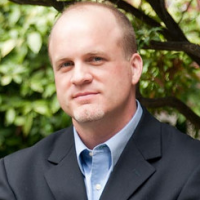
- Cheyenne Johnson, MPH, RN, CCRP, executive director, BC Centre on Substance Use
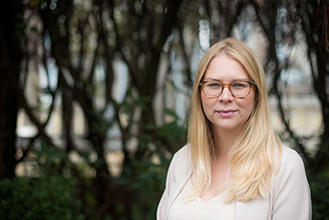
- Martha Ignaszewski, MD, FRCPC, education lead, Vancouver General Hospital Complex Pain and Addiction Service; director of Fellowships and Off-Service Postgrad Education for Child and Adolescent Psychiatry, BCCH
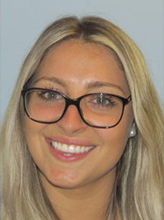
- Andrew Kestler, MD, MBA, MScPH, DTMH, emergency physician, St. Paul’s and Vancouver General Hospitals; clinical associate professor, Emergency Medicine
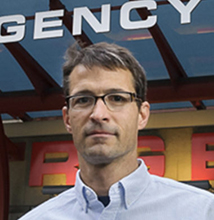
- Seonaid Nolan, MD, FRCPC, assistant professor, Department of Medicine, UBC; head, Division of Addiction Medicine at Providence Health Care; clinician scientist, British Columbia Centre on Substance Use
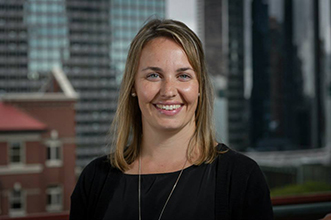
- Thomas Kerr, PhD (moderator), director of research, BC Centre on Substance Use; professor and head, Division of Social Medicine, Department of Medicine, UBC; associate faculty member, School of Population and Public Health, UBC
-
11:00 a.m. | Rural health | A regional breast health clinic: assuring timely access to breast cancer diagnosis and treatment for rural-remote and urban communities
In 2017 a Breast Health Clinic (BHC) was opened at a B.C. regional hospital serving both urban and rural-remote communities. Wait times for breast cancer diagnostics and treatment were not meeting national or provincial standards. Also, patients with abnormal mammograms were waiting less than patients presenting with symptoms. Evidence suggests that BHCs can improve wait times, but little has been written in relation to the rural context. Study objectives were to determine whether the BHC improved wait times, whether the BHC improved compliance with provincial and national standards, and whether the BHC decreased the wait time disparity between screening mammogram referrals and symptomatic patients.
Speaker:
- Ross Cuthbert, RN, MA, registered nurse, Royal Inland Hospital; regional practice lead, Research Department, Interior Health
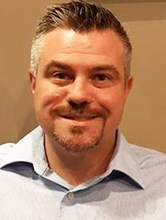
- Ross Cuthbert, RN, MA, registered nurse, Royal Inland Hospital; regional practice lead, Research Department, Interior Health
-
11:00 a.m. | Practical skills | Recruiting made easy: learn how to find study participants using REACH BC
In this session, we will be demonstrating how you can recruit research participants and advertise your study on a provincial database using the REACH BC platform.
We will show you how to set up your researcher account (reviewing all the features and tools available for recruitment purposes), post your research study or patient partner research opportunity as well as explain how to contact your potential study participants or patient partners. We will demonstrate our newest features which include sharing your study results and how to find your target audience by posting your study on our new interactive BC Research map.
Target group: Health researchers in B.C.
Note: Researchers must be appointed or employed by a health authority or public post-secondary institution (university or college) in British ColumbiaSpeakers:
- Stefanie Cheah, MSc, PMP, REACH BC manager

- Aisling Quigley, REACH BC marketing and communications specialist

- Stefanie Cheah, MSc, PMP, REACH BC manager
-
12:00 p.m. | Rural health | Rural and urban differences in opioid prescriptions for chronic and acute pain and the impact on overdose in British Columbia
Throughout Canada, there has been an increase in both fatal and non-fatal opioid related overdose events, with British Columbia having some of the highest rates. In response to this increase, the Provincial Health Officer of B.C. declared a public health emergency to mobilize resources to gather more robust data to better respond to this increase. Differences have been seen between urban and rural health regions in B.C., suggesting that there may be unique drivers to fatal and non-fatal opioid related overdose events. This presentation will provide a summary of the rural and urban differences in opioid prescribing for chronic and acute pain and the impact on opioid overdose in B.C.
Speaker:
- Kari Harder, PhD, interim regional manager, Population and Public Health Support Unit, Northern Health
-
1:00 p.m. | Indigenous health | Building research relationships with Indigenous communities: an introduction
Building Research Relationships with Indigenous Communities (BRRIC) provides training for researchers and their teams seeking to engage Indigenous communities in B.C. in research. Please join us for an introduction on the BRRIC modules that will include a diverse array of essential information at the introductory level, covering issues such as:
- the history of Indigenous health and research in British Columbia;
- existing policies and frameworks guiding research with Indigenous communities such as OCAP®, Truth and Reconciliation Commission Calls to Action, Tri-Council Policy Statement Chapter 9; and
- protocols on how to respectfully and meaningfully engage communities in research projects.
It is beneficial for faculty, researchers, patient and family advisors, health care providers, students, research and health organizations, and any other individual or organization seeking to engage Indigenous communities in research. The aim of the event is to provide participants with a foundational understanding around practical skills for engaging in transformative research with Indigenous peoples that utilizes best practices to ensure research is effective and produces outcomes that benefit Indigenous communities.
Speaker:
- Mathew Fleury, manager of research and knowledge exchange, First Nations Health Authority; adjunct professor, Faculty of Health Sciences, Simon Fraser University
-
2:00 p.m. | Mental Health and Substance Use | The alcohol use disorder pathway: a quality improvement approach for treatment in emergency department settings
Alcohol consumption is associated with approximately six percent of deaths in Canada and up to 40% of hospital admissions, either directly or indirectly. Further, approximately 20% of Canadians report heavy drinking consumption. Broadly speaking, this presentation aims to describe alcohol use disorder (AUD), how it affects a person’s functionality and its relation to public health. More specifically, on behalf of the Canadian Alcohol Use Disorder Society (CAUDS), this presentation will aim to reveal gaps of knowledge when treating AUD patients in health care systems by sharing a quality improvement project initiated by CAUDS through Interior Health, consisting of an AUD pathway in emergency department settings. This pathway is a detailed approach including several steps such as screening for AUD, providing individualized and goal-oriented AUD treatment plans, and connecting patients to Mental Health and Substance Use services.
Speaker:
- Stefan Kurbatfinski, BSc, MSc Candidate, student researcher, Canadian Alcohol Use Disorder Society
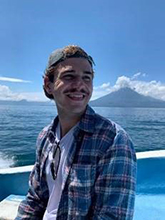
- Stefan Kurbatfinski, BSc, MSc Candidate, student researcher, Canadian Alcohol Use Disorder Society
-
3:00 p.m. | Indigenous health | Celebrating Indigenous health students: a research symposium
Please join us for a celebration of inquiry and the future of health research in B.C. This research symposium highlights the incredible research and scholarly work led by Indigenous graduate and undergraduate students from across the province. Students will present and discuss a range of current issues, methods and future directions.

